QuestionHello, My name is Nicole. I have a 2 year old Siamese queen that just had her first litter.We bred her to a male that we were offered to use, she only had one kitten about 12-13 weeks ago. She was fine came back into heat as expected but now 12-13 weeks later she has come back in but this time she has some discharge from her behind. From what i can see it isn't a lot but is a concern as i have never bred a cat before so im not sure if it is normal to have some. Also it isn't smelly.But she has been less active with the family, could it be that she is sick or could it be that the kitten is still with us and she is feeling a little ignored?
AnswerNicole,
There are a variety of reasons that queens can develop vaginal discharge and each issue varies in severity and the implications it can have both in the short and longer term health of your queen. My recommendation at this point would be to have your family vet examine your queen to determine whether she's got any kind of infection related to her recent delivery of a kitten (by the way it is odd for a queen to have one kitten, most first time moms have a minimum of 2 kittens although litter sizes can range from 2-4 kittens for a first time mom).
Your vet will most likely recommend blood work and a urinalysis to start with. The blood work will likely be comprised of a complete blood count (CBC) which will let the vet know in short order if your girl is fighting any kind of infection (her white blood cell count will be increased if she's got an infection), the vet will most likely want to determine how other organ systems are functioning so s/he may order a biochemical profile as well. A urinalysis is one way your vet has of determining whether your queen's discharge is related to a urinary tract infection (UTI). To be on the safe side your vet may also send a sample of your queen's urine off to the lab to be cultured (this is just a fancy way of saying that they keep the urine to see what if any bacteria grows in it). If your queen has a urinary tract infection the treatment is fairly routine, she will be prescribed antibiotics and retested once she finishes them to ensure that her infection has cleared up.
If the blood work and urine tests don't provide answers then your vet may do a culture of your queen's vaginal discharge (this is accomplished via a sterile swab gently inserted vaginally by your vet and placed into a sterile container that will be sent to the lab). If your vet is concerned that your queen may have retained a kitten then an ultrasound and/or x-rays of the abdomen may be recommended, if there is a kitten that was left behind the vet will recommend an immediate caesarian to prevent a potentially lethal uterine infection called pyometra. If your queen's womb is already infected the vet may have no choice but to spay her to ensure her health and survival which will mean the end of her career as a breeding queen.
If the vaginal discharge continues without any answers from the tests I've already mentioned then the tests will become much more invasive (and expensive). Your vet may do a vaginoscopy which is an examination of the vagina through a scope while your queen is under general anesthesia, while they're in there they may also want to take biopsies of vaginal tissue to be checked over by a pathologist to determine what might be causing the vaginal discharge. If the vet finds any type of cancer then you will have some difficult decisions to make. Chemotherapy and radiation treatments are available for pets, but if your kitty does have cancer it's crucial regardless of finances that you consider quality of life over quantity of life because chemo and radiation therapy come with some pretty unpleasant side effects.
Another possibility for what could be causing your queen's vaginal discharge would be some sort of infectious virus - I'm not sure how well you know the person who offered use of their stud to breed your queen, but sexually transmitted infections can be passed from cat to cat during breeding, particularly if the stud hasn't been tested and has bred with other queens before breeding with your girl. Treatment for a sexually transmitted infection is usually antibiotics. It's also important that you not breed your queen while she's got vaginal discharge and/or before she's been given the all clear by your veterinarian after repeat testing shows that she no longer has an infection.
If your vet still doesn't have answers after looking at the possibilities I've mentioned above then there's a chance that s/he may need to do testing on your queen's kidneys and urinary tract to ensure that giving birth hasn't caused any defects in the placement of your queen's urethra. Some defects can be surgically corrected (many are congenital though so it's best not to breed your queen in the future if this is the case, because ultimately you don't want to pass along less than perfect genetics to any kittens she may have). Another diagnostic option would be that your queen has some sort of clotting disorder and the vet can check this by taking a blood sample and performing a coagulation profile. To be honest the treatments for various blood disorders vary depending on what specific disorder shows up during diagnostic testing, again though this is a situation where you want to consider quality of life over quantity of life if your kitty is diagnosed with a chronic or terminal illness.
Along with conventional treatment options there are holistic and alternative approaches to treating a variety of ailments in cats. I can help point you in the right direction as far as getting in touch with a homeopathic vet or helping you to find a holistic veterinarian in your local area (or nearby, more and more vets are taking this approach so these doctors are getting easier to find). If you have any further cat related questions or concerns I'd be more than happy to help you and your queen out to the best of my ability so please don't hesitate to contact me again.

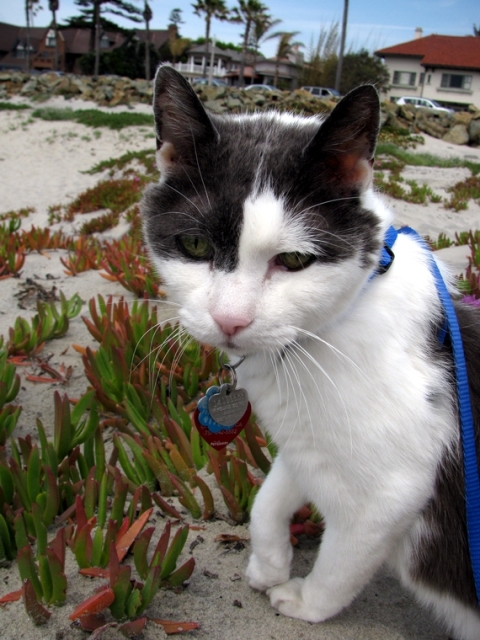 18 year old cat has blood clots in urine
Question
Tucker
My 18 year old male neutered cat is hyp
18 year old cat has blood clots in urine
Question
Tucker
My 18 year old male neutered cat is hyp
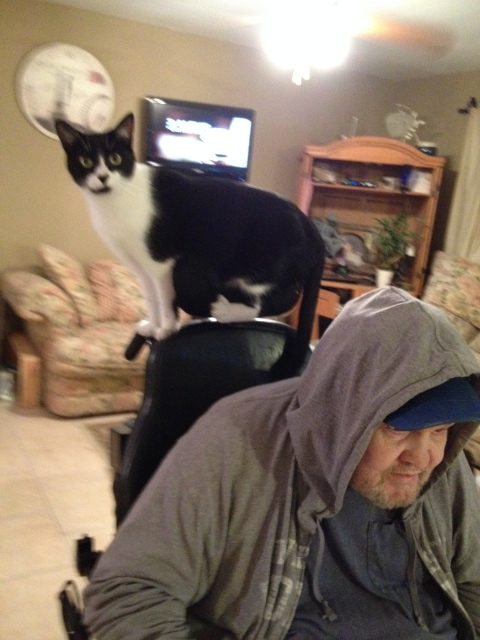 testosterone replacement for neutered male cat
Question
Monkey riding on dads Monkey sleeping h
testosterone replacement for neutered male cat
Question
Monkey riding on dads Monkey sleeping h
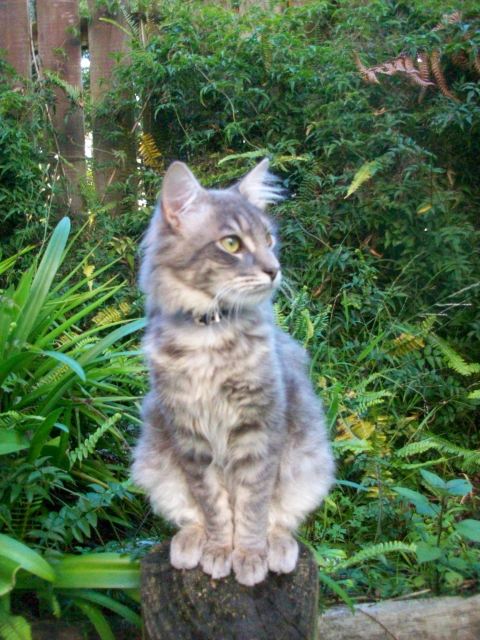 Rain
Question
my cat
Hi, i was wondering if you could help m
Rain
Question
my cat
Hi, i was wondering if you could help m
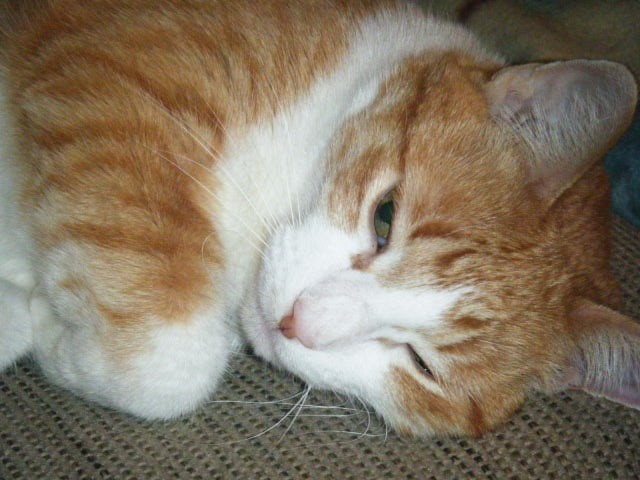 blackened area under lower jaw
Question
Daisy
My Daisy is a 12 year old short-h
blackened area under lower jaw
Question
Daisy
My Daisy is a 12 year old short-h
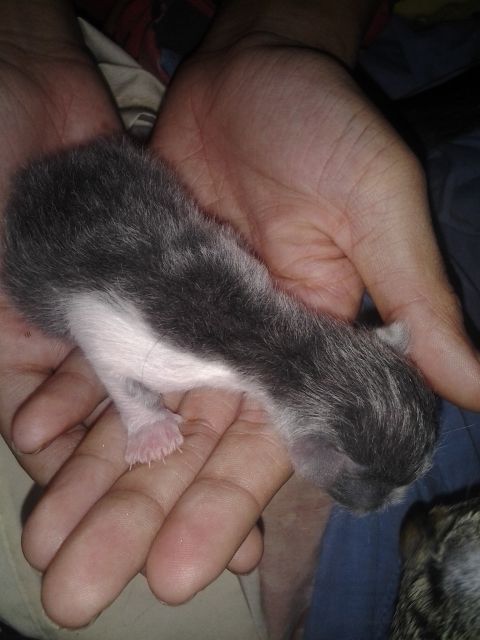 Trouble with my Two female cats.
Question
The kitten Two Cats
Hello, I have
Trouble with my Two female cats.
Question
The kitten Two Cats
Hello, I have